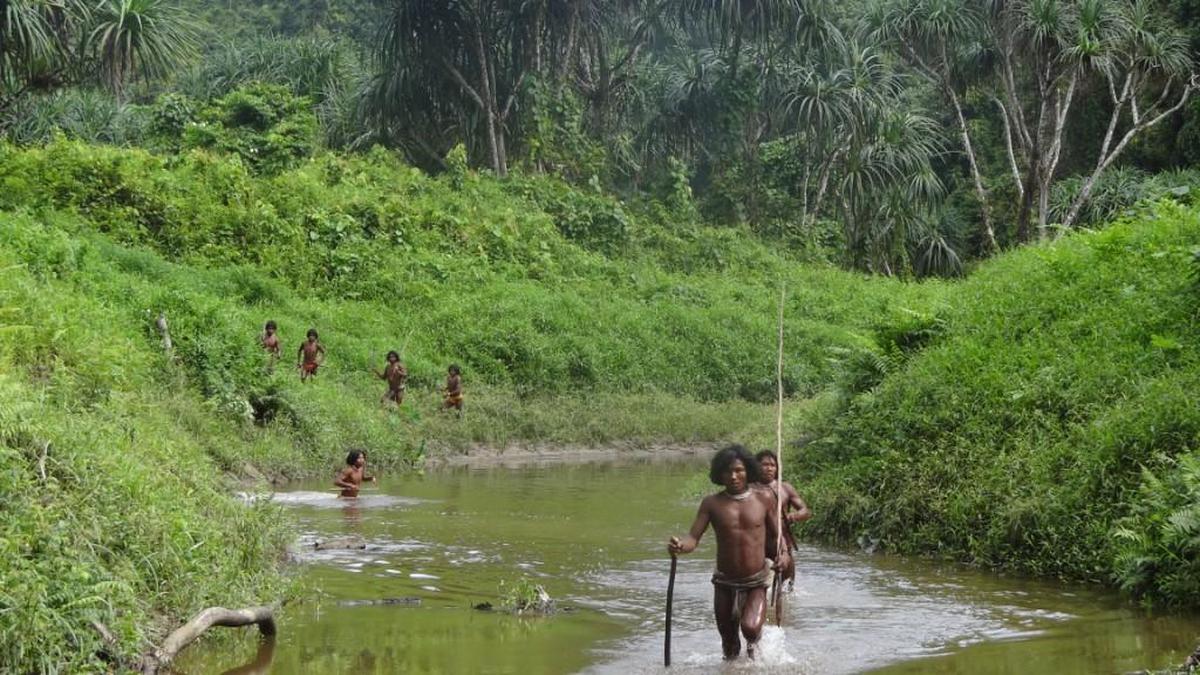
‘Shompen people prize their freedom above all’, says former ASI director in Andaman Islands
The Hindu
Former ASI director shares insights on Shompen tribe's struggle against development in Nicobar Islands, emphasising their need for freedom.
Triloknath Pandit, a former director of the Anthropological Survey of India (ASI) who was posted in the Andaman islands for nearly two decades, chuckles at a memory involving Fakhruddin Ali Ahmed, the fifth President of India.
On a visit to the islands, the head of state and his wife were slated to meet with tribal residents. “As the resident anthropologist, I was summoned and gave a talk at the government guest house. As part of the function, they had some [people] from the Shompen tribe in attendance,” says the 89-year-old Mr. Pandit, in an interview at his home in Delhi.
“There was the President and there were a couple of well-built Shompen men. They came with their hunting spears and were naked. There was also me and some other officials. Everybody in the room was silent and staring at each other because there was no comprehensible language in which to communicate. Suddenly some of the Shompen visitors started weeping and were in visible distress. They had been out fishing and were suddenly caught and herded into a guesthouse. All in all, it was an extremely awkward situation,” he recalls.
According to the 2011 Census, there are only around 229 members of the Shompen tribe, which makes its home in the Nicobar Islands along with the much more numerous Nicobarese tribe. The Shompen, a semi-nomadic forest-dwelling tribe believed to have been resident in the Great Nicobar Island for at least 60,000 years, have historically preferred limited contact outside of their groups.
In May 2024, seven of them voted in the general election, amidst a contentious plan to develop a trans-shipment container terminal, port, and solar power plant in the Great Nicobar island. This will involve razing nearly a million trees in about 130 square km of rainforest, which are the primary source of sustenance to the forest-dwelling Shompen. While environmental clearances have been accorded to the project, the Congress party, environmental groups and collectives of anthropologists have publicly voiced concerns over the environmental consequences of the project.
Mr. Pandit warns that such projecs could have disastrous consequences for the Shompen. “My observation is that living in the forest, in the way they want to, is their supreme concern. In my opinion, such major infrastructure projects aren’t correct [in the Great Nicobar island]. They are virgin forests and part of it has already been destroyed,” he says.
In his years as an anthropologist with the ASI, Mr. Pandit interacted with all of the existing tribes in the Andaman and Nicobar islands. He was the first researcher to make contact with the particularly reclusive Sentinelese, who live in the Sentinel islands. The latter sparked an international controversy in 2018, when American missionary John Chau, who illegally visited the island to evangelise, was lynched by the islanders.











